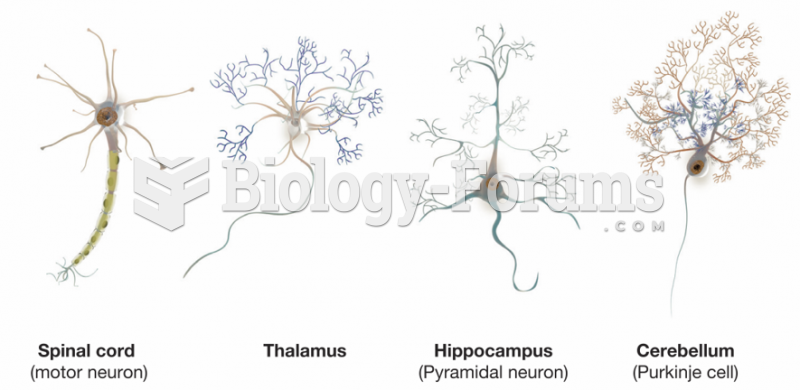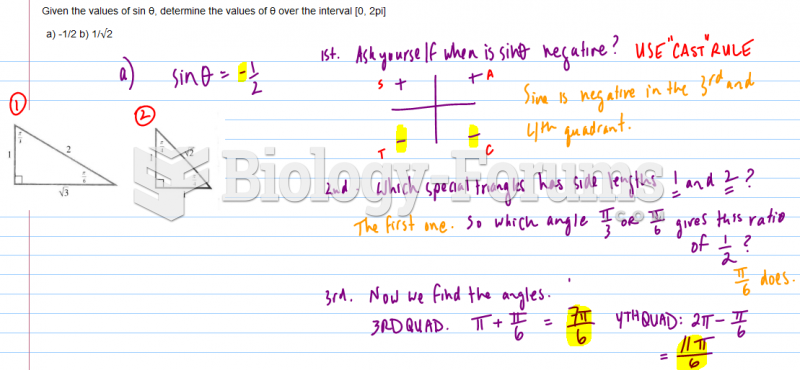Answer to Question 1
ANSWER:
Identification of mirror neurons in humans has been complicated by ethical concerns about the methods used. In monkeys, mirror neurons were observed through surgically implanted electrodes. This type of invasive procedure would be difficult to do in humans. However, recent recordings taken while patients were undergoing surgical treatment for seizures provided researchers with an opportunity to investigate the existence of mirror neurons in humans. This investigation led to the conclusion that mirror neurons do, in fact, exist in humans as well as in monkeys.
What purposes might be served by mirror neurons? One suggestion is that mirror neurons would help us predict the actions of others, allowing us to understand intentions. The ability to predict future circumstances would contribute significantly to the survival of an organism. Mirror neurons might also form the basis of empathy. Individuals who appear to be high in empathy show stronger activation than other people in identified mirror systems in the human brain.
Children use gestures, like pointing at a cookie jar to indicate I want a cookie, long before they learn to use words to convey the same meaning. It is likely that preverbal hominids also used gestures to communicate. Mirror neurons might have played a role in the development of language, both for our species and for individual learners. Consistent with this argument, mirror neurons in monkeys are located in a part of the brain that is quite similar to the human Brocas area of the frontal lobe. Activation in Brocas area is correlated with the production of speech.
Because individuals with autism do not show typical imitative behaviors in childhood, a natural extension would be to look for possible correlates in the mirror neuron systems in autism. Some researchers have presented evidence that mirror neuron function is disrupted in individuals with autism, especially when they are engaged in emotional or social tasks. Others argue that a broken mirror explanation for the social deficits observed in individuals with autism is overly simplistic and that further research is necessary before making strong conclusions about mirror neuron function in this population.
Answer to Question 2
ANSWER:
The text provides an example of breaking a bad habit through operant conditioning, the consumption of high-calorie snacks while studying at night. Based on this example, students could include consideration of the following steps:
Understand current behavior by keeping a diary regarding smoking, when and how much, what else is going on at the time, what possible reinforcers or punishers are influencing her smoking patterns. Students could note that Elissas smoking seems to be associated with social camaraderie and the good tastefeeling of coffee, the stress of academic work, and time of daydinner time and onward.
Consider making changes to her environment to reduce the need to make choices that might lead to smoking (rather than rely solely on willpower, which we have in limited quantity and which does nothing to weaken previously formed associations related to smoking). Students might suggest switching to tea after dinner to reduce the coffee trigger, developing other stress reduction techniques such as meditation or exercise, chewing gum or on a straw or eating carrot sticks to address the oral sensations, or studying more in the morning when she does not seem to have developed associations with cigarettes, and so on.
Develop appropriate consequences for her behavior of smoking or not smoking. Consequences must be meaningful to the individual. Positive reinforcement is generally preferable. Students might suggest something like putting aside the money that was being spent on cigarettes and going out for a nice dinner with friends to mark each 2 weeks without smoking, or using the money toward occasional treats such as a facial or manicure or, if things go well, a trip at spring break. If punishment would work better for Elissa, that could be developed instead. The text notes that, for each cigarette smoked, a donation to a political cause that Elissa abhors might be effective.
Track progress and make any modifications that seem necessary.







